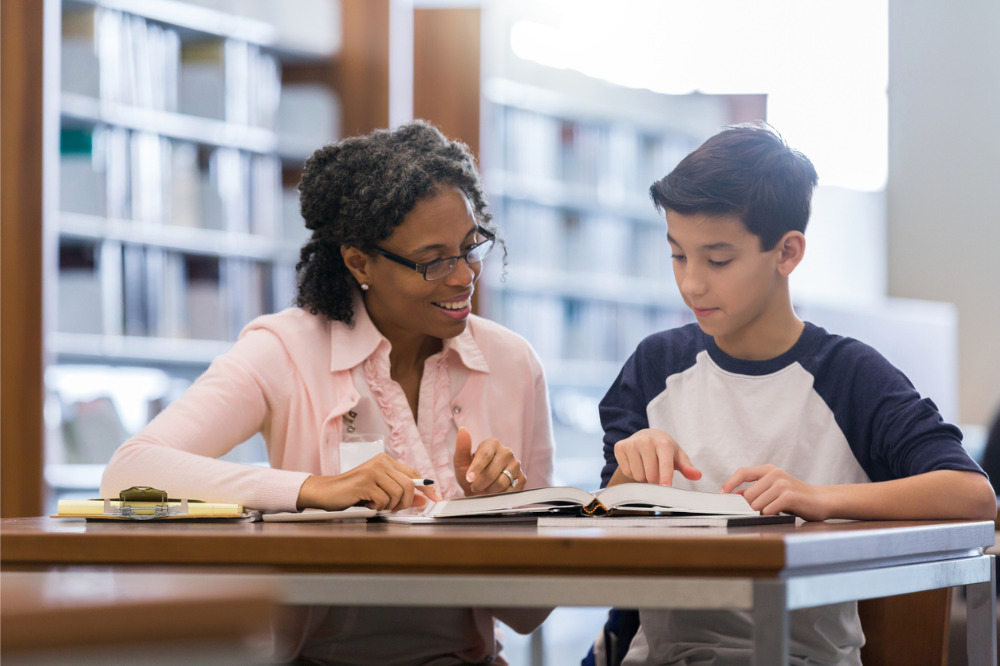
As NSW and Queensland battle a second wave of the COVID-19 pandemic, students whose parents are non-essential workers are once again being forced to learn from home, and for many young people, the isolation and uncertainty this brings is having a serious impact on their mental health.
Earlier this month, a study found there is a now resounding focus on mental health and wellbeing across every state and every school in Australia.
According to the research, conducted by Schools Plus, over 38% of respondents said mental health and wellbeing was their primary priority – ahead of literacy and numeracy, STEM, and family and community engagement. Of schools significantly impacted by COVID-19, this number shot up to 50%.
On the NSW Central Coast, one school is taking shaking up its approach to improving student wellbeing across its campus during the challenges that COVID-19’s second wave is presenting to its teaching and learning community.
Jesse Manners, leader of wellbeing at St Philip's Christian College (SPCC) Gosford, has had some eye-opening conversations with his students and staff over the last 18 months of the pandemic. In an interview with The Educator, he shared some of the most challenging aspects of remote learning, and how the school has been addressing them.
“From the students that I have been communicating with and the ei Pulse data that I have been assessing weekly, I would say that the biggest challenges of my students could fit into two core categories; identity and the lack of social influence and the psychological impacts of lockdown,” Manners told The Educator.
“Identity and the lack of social influence that plays a large role in forming a teenager’s sense of self. I have multiple students struggling socially without the medium of the school playground.”
Regarding the psychological impacts of lockdown, Manners pointed out that emergency interventions nationally have increased by 99% with 13 to 18-year-old’s counting for 75% of these crisis interventions.
“There are students who previously were model students but now are losing their usual drive and educational engagement,” Manners said.
“Students are struggling to get out of bed on time, show up to class, or have begun acting out behaviourally due to the impacts of isolation on their overall wellbeing”.
To address the ongoing challenges associated with remote learning and the long-term impacts of the COVID-19 pandemic on students and staff, the College is building a ‘systematic whole-school approach’ to student wellbeing.
“As a Christian College we highly value the concept of not only loving God but also loving people. From Kindergarten to Year Twelve we have a strong pastoral care system through the use of Core Teachers, Pastoral Care Teachers and Year Advisors,” Manners said.
“What makes this system so effective is that our support is Data driven through Pulse analytics and scientifically backed through the resources of SchoolTV.”
Manners said upskilling and equipping the teachers with these resources at the ground level allows for a smooth and responsive transition of student concerns through the College’s various levels of wellbeing support.
“When we partner this with parent education and proactive wellbeing supports it helps to make a big difference in identifying and providing world class support to our community,” he said.
“There are obviously a range of other things in play within how we strategically meet the needs of our students but that is a brief description of our wellbeing support at its core.”
Manners said schools need to widen their web of wellbeing support outside of the traditional three-tier approach where often the majority of emphasis is focused towards supporting the top two tiers.
“There are a lot of students within our ‘usual’ Tier one category, which accounts for 80% of our student populations that are now, more than ever, in need of preventive and proactive support,” he said.
“I think that schools need to invest time into how they are building positive relationships with students. If you don’t know who you’re helping you can’t help anyone and today’s youth certainly won’t engage in whatever support you do try to implement if they smell the slightest whiff of an inauthentic relationship.”
Outside of this, Manners says helping to guide students towards understanding the value in the pursuit of hedonic happiness (which defines wellbeing in terms of pleasure attainment and pain avoidance) happiness and eudaimonic happiness (relating to meaning, and self-realisation) will be helpful in building positive emotions.
“For some, this can counteract the negative emotions building in today’s current climate of lockdown and online schooling.”
Manners said executive leadership teams need to keep an awareness of the wellbeing levels of their teachers and support staff so they can make this support a priority.
“The greatest resource in any school are its educators. I have a saying that I love to use when talking about self-care, ‘At 90mph regardless of the size or quality of the tree, it will snap,’” he said.
“Teachers are one of the most resilient professions out there but we’re also one of the worst at self-care. Providing encouragement and time for this to occur would be an invaluable practise for any school.”
Joe Thurbon, CTO Educator Impact, said one of the things the company commonly hears from both students and teachers with regards to building authenticity is that “regular and familiar” (like Pulse) is a great first step as it is reinforced by action.
“The second is around looking after that 80% of students who are in Tier one,” Thurbon told The Educator.
“One of the things that stands out in our data is that from one week to the next, 45% of students will change their answers to ‘How are you feeling.’”
In that context, Thurbon says effectively monitoring after a large cohort of students is almost impossible without some automated support.
“I’m just really proud of the impact we're helping our schools to have.”


